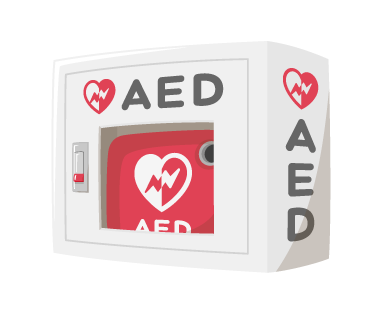CardiacCrash: A New Way to Respond to Heart Attacks

by Deb Gerow | President, ARTA
Most of us want to help when we see someone in medical distress. Witnessing someone experiencing a cardiac crisis, someone who has possibly lost consciousness, stopped breathing, is unresponsive, or seemingly without a pulse, it’s a terrifying situation to be in. Of course, we can call 911, but the time it takes for an ambulance to arrive at the scene can seem endless. Is there something else we can do in a situation like this that may improve the outcome for the victim?
For years, first responders have utilized the CPR (Cardiopulmonary Respiration) technique to assist in pumping oxygenated blood to the brain when the heart has stopped beating. This procedure is relatively easy to learn, but for those of us who are not professional medics, it is also easy to forget exactly how to use it.
That is why the Heart and Stroke Foundation of Canada has developed CardiacCrash. This new, one hour course is intended for people of all ages who would like to learn how to support a person who has had a cardiac attack until the ambulance arrives. It reduces CPR to the most basic level and focuses on getting the blood circulating throughout the body. The course answers many questions about the procedure and provides lots of opportunities to practice the technique. Participants also learn how to use an AED (Automated External Defibrillator). This device, now found in many public buildings, will deliver a shock to the heart, which ideally causes the heart to resume its normal functioning.

Strathcona County, where I live, is one of the jurisdictions in Alberta which is piloting CardiacCrash. The course is being delivered by trainers from Strathcona County Emergency Services to a wide variety of groups. I participated in a session held at our seniors’ centre with nearly 40 seniors ranging in age from 60 to well over 90. Although it was not required that anyone try the technique being taught, nearly all attendees did. Everyone was very enthusiastic about the course and what they had learned.
When the pilot ends, and it is more widely available, I would definitely encourage people to take this course. Not everyone who has a cardiac crisis can be saved, but if you have the training and are willing to try, you increase their chances of survival tremendously.

Deb has been an active member of ARTA and Elk Island Retired Teachers’ Association (EIRTA), her local branch, since 2012. She has served on many ARTA committees and served as EIRTA vice president before assuming her current role as ARTA President, where she works to help members maintain an active, engaged lifestyle in retirement.